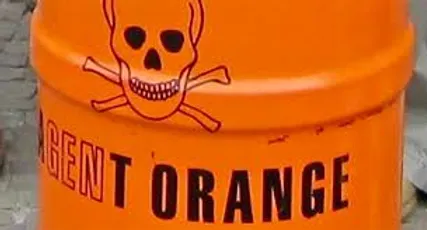Efforts to seek compensation for victims of Agent Orange in Guam inched closer to reality, while a similar attempt for Guam residents who were exposed to radiation from U.S nuclear tests in the late 1940s is not yet totally off the table, said Delegate James Moylan
In his congressional address before the 37th Guam Legislature on Monday, Moylan reported that the recent passage of the National Defence Authorisation Act for Fiscal Year 2025 in the U.S House of Representatives includes his amendment that requires a study on the impact of Agent Orange in Guam.
The study would include the exact dates of when Agent Orange was dumped on the island, identifying the sites where the toxic herbicide was dumped and their impact on the territory’s civilian population.
The Honouring Our Pact Act, also known as the PACT 2022, recognises the Agent Orange exposure experienced by military veterans who were stationed on Guam and are eligible for related healthcare benefits under the law.
That proposed study under the NDAA would look into the impact of Agent Orange on the civilian population.
“This is a long-standing process and one that could have been addressed in previous years. However, we are starting it, with the objective that it eventually materialises into compensation for those civilian residents who were adversely impacted by the burn pits,” he said.
The U.S military used Agent Orange during the Vietnam War to kill vegetation, defoliate forests, and expose the enemy.
Next up is for the U.S Senate to also pass its version of the NDAA.
Moylan acknowledged that his efforts to add the Radiation Exposure Compensation Act, or RECA, to the NDAA failed after being ruled out of order, but he assured that the measure is still in play.
He said Senator Josh Hawley will try to have this measure added to the Senate version of the NDAA and that he will continue to seek support for this.
Moylan said the issue with RECA is the funding source, which is estimated to cost around US$50 billion.
“…The House rules are simple: For every dollar you spend, you must find a dollar to cut. …But like I stated, the fight is still on, and our team is involved with a committee of various offices who are seeking offsets.,” he said.
If the Senate approach fails, then the next attempt to have the RECA approved will take place after the election, Moylan said.
By then, Congress will be in a lame duck period, and rules may be eased. “The point is, we will keep trying until this injustice for our people is addressed,” he added.
Moylan credited Robert Celestial and the Pacific Association for Radiation Survivors organisation in Guam for their continued advocacy on this issue.
RECA already provides compensation to certain groups of people who contracted diseases arising from U.S nuclear tests, but it failed to include Guam “downwinders”—the civilian residents who were downwind of the radiation fallout from nuclear tests conducted in the Pacific in the late 1940s.














